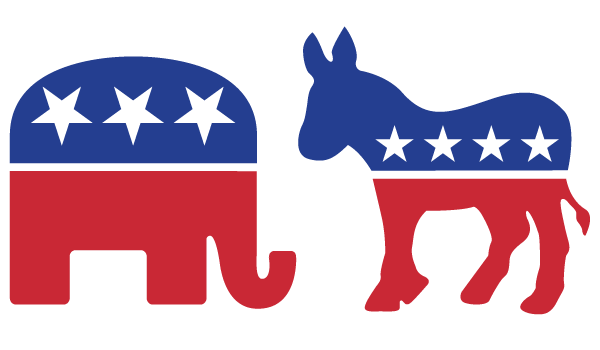
Republican nominee Donald Trump has been clobbered in the White House Watch survey following the release of a video showing him discussing women in graphic sexual detail.
Rasmussen Reports’ latest national telephone and online survey of Likely U.S. Voters finds that Democrat Hillary Clinton has now jumped out to a seven-point lead – 45% to 38% – over Trump. On Friday, the two were in a virtual tie – Clinton 43%, Trump 42%.
The latest survey shows Libertarian nominee Gary Johnson with seven percent (7%) support and Green Party candidate Jill Stein at two percent (2%). Three percent (3%) like some other candidate, and five percent (5%) are undecided. (To see survey question wording, click here.)
This marks Clinton’s highest ever vote total against Trump – and her biggest lead – in Rasmussen Reports polling stretching back to August of last year. It’s Trump’s worst showing in nearly two months. This survey was concluded prior to the second debate between the two candidates last night in St. Louis.
Eighty percent (80%) of voters say they are already certain how they will vote in this election, and among these voters, Clinton posts a 51% to 45% lead. Among the voters who could still change their minds, it’s Clinton 43%, Trump 25%, Johnson 25% and Stein seven percent (7%).
Rasmussen Reports updates its White House Watch survey daily Monday through Friday at 8:30 am Eastern based on a three-day rolling average of 1,500 Likely U.S. Voters.
(Want a free daily e-mail update? If it’s in the news, it’s in our polls). Rasmussen Reports updates are also available on Twitter or Facebook.
The survey of 1,500 Likely Voters was conducted on October 5-6 and 9, 2016 by Rasmussen Reports. The margin of sampling error is +/- 2.5 percentage points with a 95% level of confidence. Field work for all Rasmussen Reports surveys is conducted by Pulse Opinion Research, LLC. See methodology.
Rasmussen Reports asked voters if they’ve ever changed their vote because of presidential debates. We’ll tell you what they say at 10:30 a.m. Eastern.
Trump now has the support of just 71% of Republicans but still leads by six points among voters not affiliated with either of the major parties. Eighty-three percent (83%) of Democrats back Clinton. She also earns 16% of the GOP vote, while 10% of Democrats still prefer her Republican rival.
Eighty-four percent (84%) of Republicans and 86% of Democrats say they are certain of how they will vote, compared to only 68% of unaffiliateds.
Clinton has a 14-point lead among women in the latest survey. The two are now tied among men, a group that has supported Trump by wide margins in the past. Roughly 80% of both men and women say they are sure already how they will vote.
Trump has repeatedly criticized Federal Reserve Board Chairman Janet Yellen for keeping interest rates low to prop up a weak economy for political reasons, an accusation the Fed strongly denies. But only 28% of voters think the Federal Reserve chairman is truly independent of the Obama administration.
Voters remain skeptical about the political news they are getting. Voters also continue to strongly believe that the media is more interested in controversy than in the issues when it comes to the presidential race.
But 45% of voters said in early August that Trump’s biggest political enemy is himself. Just 29% say his biggest foe is Clinton and the Democratic party, while 20% say it’s the national media.
As in previous presidential election cycles, however, voters expect reporters covering political campaigns to help their favorite candidates and think it’s far more likely they will help Clinton than Trump.



Expositores: Oscar Vidarte (PUCP) Fernando González Vigil (Universidad del Pacífico) Inscripciones aquí. Leer más
Una retrospectiva para entender los próximos cuatro años. Leer más
En la conferencia se hará una presentación de los temas más relevantes del proceso de negociación se llevó a cabo desde el 2012, así como del acuerdo de paz firmado entre el Gobierno colombiano y la guerrilla de las FARC a finales del 2016. Se analizarán los desafíos y las... Leer más
El Observatorio de las Relaciones Peruano-Norteamericanas (ORPN) de la Universidad del Pacífico es un programa encargado de analizar y difundir información relevante sobre la situación política, económica y social de Estados Unidos y analizar, desde una perspectiva multidisciplinaria, su efecto en las relaciones bilaterales con el Perú.
© 2026 Universidad del Pacífico - Departamento Académico de Humanidades. Todos los derechos reservados.

